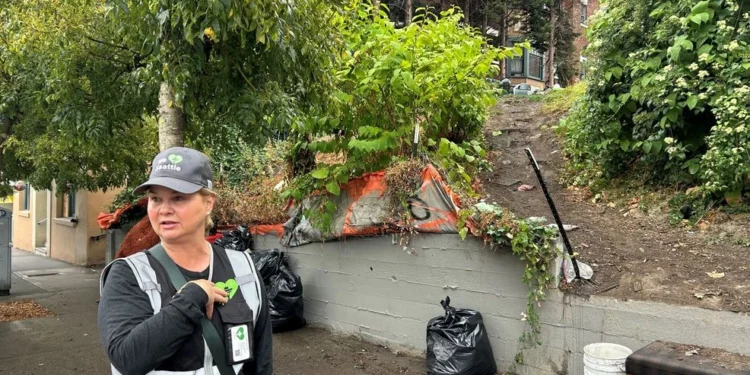Seattle landlords are increasingly burdened with steep penalties and cleanup costs as unauthorized homeless encampments continue to appear on their vacant properties, often without their knowledge or consent. One such site along Melrose Avenue on Capitol Hill recently drew attention after it became overrun with tents, discarded needles, and hazardous waste.
Though property owners are not the ones who invite homeless individuals onto their land, many say they are left footing the bill for neighborhood complaints and safety concerns. Beyond paying for cleanup efforts, landlords can also face city-imposed fines and are often expected to install new fences and other security infrastructure.
A recent effort to clear a particularly troubled site was led by the outreach group ‘We Heart Seattle’, which is funded privately. Andrea Suarez, who leads the group, described the affected lot as “a hazardous waste site” that had been disrupting both local businesses and residents. She noted that their team not only removed dangerous materials like gas canisters and makeshift weapons, but also connected several displaced individuals with medical services and addiction treatment referrals.
The situation reached a tipping point after neighbors reported fires, visible drug use, and mounting garbage near the encampment. Their complaints triggered a city inspection, which resulted in a formal notice of violation. The property owner was given a deadline to secure and clean the lot or face daily fines of up to $500.
Despite eventually hiring crews to address the issue, neighbors expressed frustration over the slow pace of action. Suarez emphasized that a more collaborative approach is needed, suggesting that both public funding and community outreach should support private landowners in managing these situations. “We need to find a common ground,” she said, adding that while outreach is critical, “owners also deserve a bit more leeway.”
According to a spokesperson for the property owner, addressing the damage will cost upwards of $10,000, money that will go toward removing graffiti, cleaning up trash, and restoring the lot. Suarez echoed that sentiment, pointing out the steep costs involved in supporting cleanup and homeless assistance efforts. “It costs thousands of dollars. Where are they supposed to put that kind of money?” she asked.
While the city may delay enforcement if a landlord shows meaningful progress, many owners report difficulties meeting deadlines due to challenges in securing reliable contractors for fencing and other security installations.







